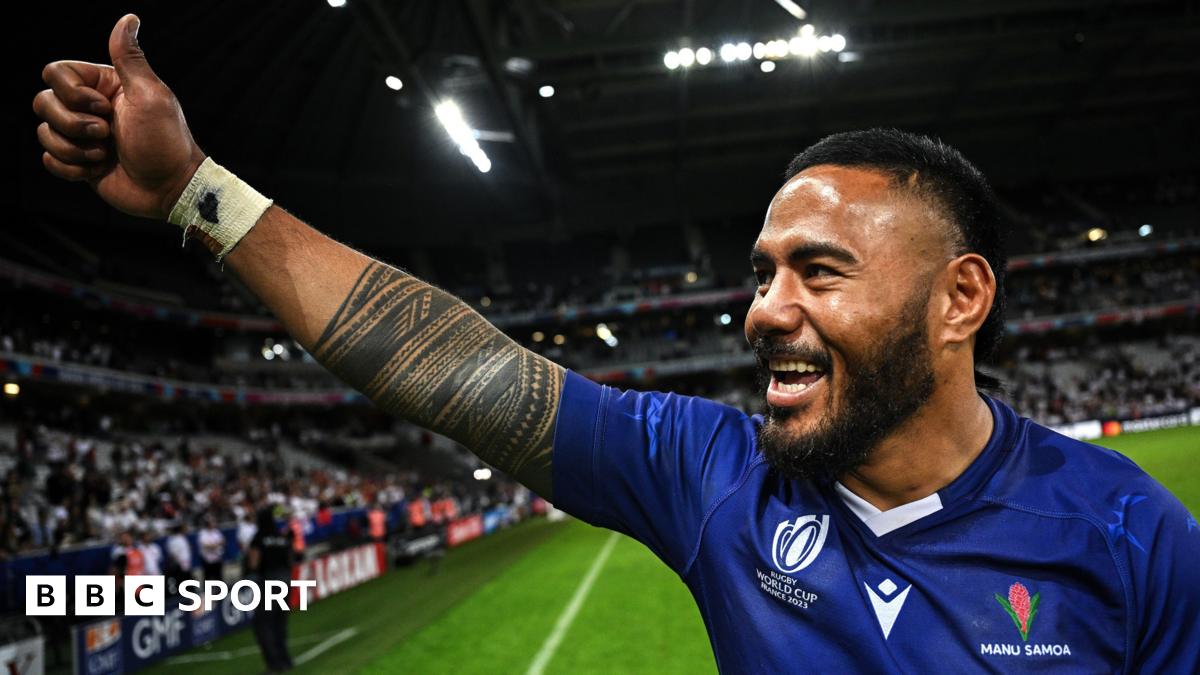Manu Tuilagi: Samoa option for 2027 Rugby World Cup open
“It’s crazy to see where Samoa are from being close to beating us in 2023,” said Manu.
“It’s tough to see.
“My five brothers have played for Samoa, maybe they will say ‘go, get on the flight’!”
Tuilagi played 20 league matches in Bayonne’s run to the Top 14 play-off semi-finals last season, a run of fitness that he rarely matched during his time in England.
Although currently out of action with a hand injury, he believes a change of scenery has helped him avoid longer lay-offs.
“I think it’s the sun and the red wine, something like that,” he joked.
“Training’s intense [in England], over there maybe not as intense.
“It’s long – on Tuesday, our big day, we will still be up at 6-7km [of running in the session]
“But the contact is not as much as in England… just in general the lifestyle is different, the way the French live is very, very relaxed.”
